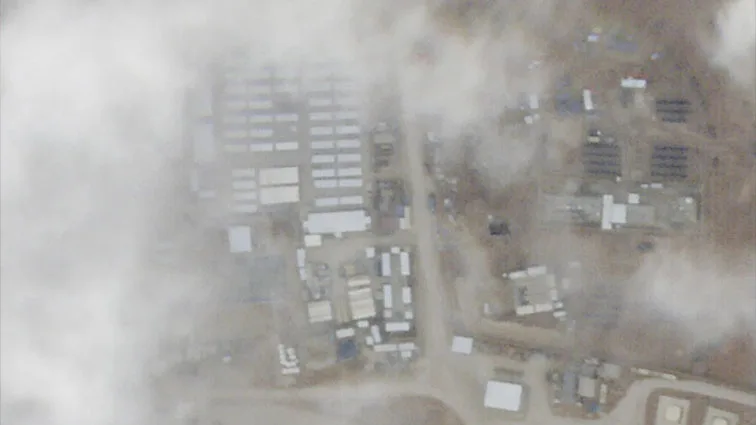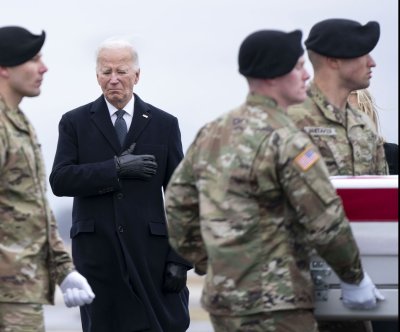On Friday, the United States conducted airstrikes in Syria and Iraq as a response to the killing of three U.S. soldiers in Jordan the previous Sunday.
U.S. Central Command reported that American forces targeted over 85 sites in Iraq and Syria, specifically against Iran’s Islamic Revolutionary Guards Corps (IRGC) Quds Force and affiliated militia groups. President Joe Biden stated that these attacks on militia sites would continue “at times and places of our choosing.”
The retaliation came after three American soldiers were killed in Jordan by a drone launched by militant groups backed by Iran’s IRGC. Over 40 additional U.S. troops were wounded in the drone attack near the Jordan-Iraq-Syria border. The U.S. accused Iran-backed militants of the strike, while Iran denied any involvement.
National Security Council spokesman John Kirby stated that U.S. forces targeted a total of seven facilities used by militias backed by Iran, with three in Iraq and four in Syria.

The U.S. Central Command reported using more than 125 precision munitions in the airstrikes, hitting command and control centers, intelligence facilities, rockets, missiles, unmanned aerial vehicle storages, and logistics and munition supply chain facilities.
President Biden, after attending the dignified transfer of the three soldiers killed in the Jordan attack, emphasized that the United States does not seek conflict but warned that if harm comes to Americans, there will be a response. Defense Secretary Lloyd Austin, also present at the return of the slain soldiers, had earlier mentioned a “multi-tiered” response.
Lt. Gen. Douglas Sims, director of the Joint Chiefs of Staff, disclosed that U.S. Air Force B-1 bombers were used in the airstrikes. However, Republican House Speaker Mike Johnson criticized the Biden administration for what he deemed as telegraphing the response to Iran.
The Iraqi army condemned the strikes in border areas as a “violation of Iraqi sovereignty” and a “threat that will drag Iraq and the region into unforeseen consequences.” The U.S. officials stressed that these responses would not conclude immediately, indicating an ongoing commitment to address the situation.


